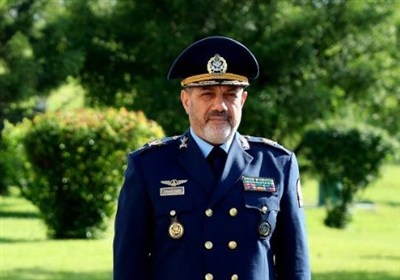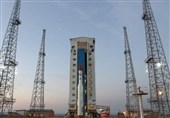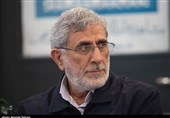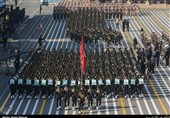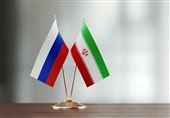As Turkish Election Looms, Erdogan Presses Pro-Kurdish Opposition
TEHRAN (Tasnim) – With a re-run of June's parliamentary election looming, some analysts say Turkish president Recep Tayyip Erdogan and the ruling AKP party have gone on the offensive, accusing pro-Kurdish opposition of ties to the banned Kurdistan Workers Party (PKK).
At an "anti-terrorism rally" this weekend, Turkish President Tayyip Erdogan looked out over a sea of red national flags and implored supporters to vote on Nov. 1 for "domestic" candidates.
"I think you understand what I mean, don't you?" he thundered to the crowds in Istanbul's working-class district of Yenikapi, where pro-government media said hundreds of thousands came out to protest against violence in the restive southeast, Reuters reported on Monday.
Erdogan's target was clear to all: the pro-Kurdish opposition, the Peoples' Democratic Party (HDP), that had helped strip the ruling AK Party of its majority in June. A vote for them, he suggested, was a vote against Turkey.
Erdogan and the AKP he founded have gone on the offensive, accusing the HDP of ties to the banned Kurdistan Workers Party (PKK), designated a terrorist group by Washington and Ankara.
With a re-run of June's parliamentary election looming, some analysts say the AKP may be able to benefit from nearly daily fighting between security forces and PKK militants that followed the collapse of a ceasefire in July.
The PKK began its separatist insurgency in 1984 and more than 40,000 people have since been killed. The group, its fighters concentrated across the border in the mountains of northern Iraq, says it now seeks greater Kurdish autonomy.
Erdogan, who has dominated Turkish politics for over a decade, has promised the fight will go on until "not one terrorist is left".
By talking tough on the Kurds, the logic goes, the AKP may win back voters who had supported the nationalist MHP in June.
"The AKP appears to have decided to adopt a divide-and-conquer policy in a drastic attempt to regain its parliamentary majority in early elections," the Bipartisan Policy Center, a US think tank, said in a report this month.
"Given the deteriorating situation along Turkey's borders, bolstering nationalist rhetoric and undermining the HDP and the Kurds seems to have become the AKP's path to a second-round electoral victory."
There is cause enough for popular anxiety. War rages across eastern frontiers in Iraq and Syria, where ISIL fighters stand close to Turkish troops, and more than 2.2 million Syrian refugees now live on Turkish soil.
While one poll released on Monday showed support for the AKP had declined, other recent surveys suggest the strategy is working.
SUPPORT SLIPPING?
Support for the AKP has slipped by 1.6 points to 39.3 percent, a survey of 5,000 people taken by pollster Gezici showed on Monday.
In June, when the center-right AKP lost its single-party majority for the first time since coming to power in 2002, it took 40.9 percent of the vote.
Yet a poll last week from Metropoll, whose surveys are closely watched in financial markets, showed support had risen to 41.4 percent.
"I don't take polls showing the AKP's votes below 40 percent seriously. Our support is definitely increasing," a senior AKP official told Reuters.
The AKP is also bringing back one of its best known politicians for the race. On Friday it said former deputy prime minister Ali Babacan - widely credited with steering the economy through years of rapid growth - will run for a seat representing Ankara.
The party could win as much as 5 percent more than it did in June, the Bipartisan Policy Center said in its report this month, putting it just past the 276 seats required for a parliamentary majority.
"Turkey's AKP has begun air strikes against the Kurdistan Workers Party (PKK) - with whom it had been conducting peace talks for the last two years - and launched a smear campaign against the HDP linking it the PKK," it said.
"The resulting sense of crisis and danger to the Turkish state appeals to nationalist voters."
Use of the "anti-Turkish" epithet is no new venture for Erdogan. He has in the past accused mainstream rivals of supporting terrorism, denounced a cleric-adversary as a coup instigator, financiers as traitors and seen those deemed to insult him charged with offences against the constitution.
One EU official familiar with Turkey told Reuters there was growing worry Erdogan might try to use the security situation in the southeast as an excuse to delay the polls, to wait until he felt sure of a single-party majority.
After the June polls, the AKP failed to find a junior coalition partner, leading to the early poll. Some fear that process could repeat itself in November, and Erdogan is a leader who seems to eschew the politics of bargains and compromise.
However, the senior AKP official said there would be no delay.
"This election will be held in November and that is the date we are preparing for," he said. "If we can't get the majority we will do serious work for a coalition. But for now, the goal is single-party government."


